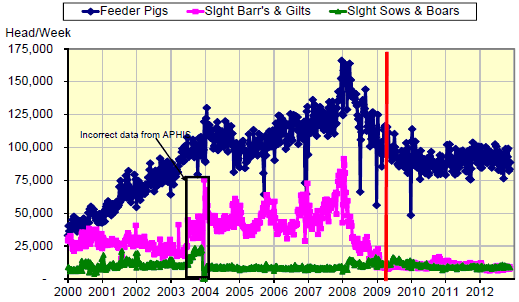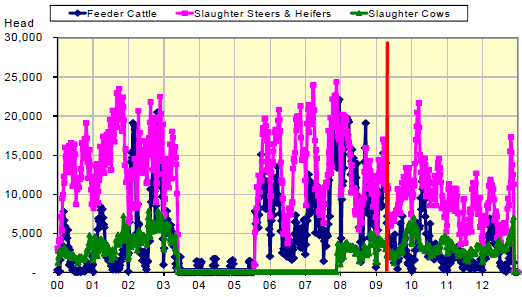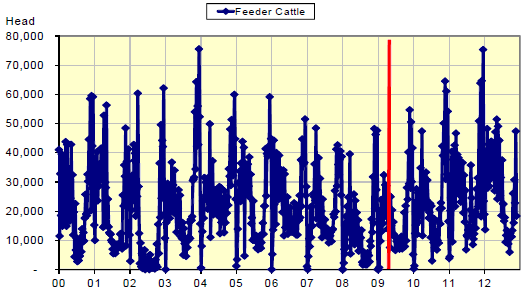



CME: Factors Driving US Pork and Cattle Imports
US - The clock is finally and officially ticking on US policymakers regarding mandatory country-of-origin labeling. The US has until May of next year to bring the labeling rules on meat into compliance with the ruling handed down earlier this year by a WTO Dispute Settlement Body, write Steve Meyer and Len Steiner.The WTO arbitrator stated that 10 months from the 23 July 2012 adoption of the appellate panel’s report was a reasonable time period
for the US to meet the requirements. So 23 May 2013 is the date on
which, if the US is not in compliance, Canada and Mexico may commence
taking retaliatory action against the United States.
A statement from Canada’s Trade Minister, Ed Fast, and Agriculture
Minister, Gerry Ritz said, in part, that, “The WTO Appelate Body
has recognized the integrated nature of the North American supply chain
and marked a clear win for our livestock industry.“ Further, they said they
were “particularly pleased“ that the WTO set a compliance period much
closer to the period requested by Canada than the much longer period
(18 months) that the US had requested.
The challenge for American officials is to figure out just how to
change the current US rules to meet the WTO ruling. US Trade Representative
Ron Kirk was quoted by a MeatPoultry.com article saying that
the US remains committed to providing consumers with country-of-origin
information about meat and poultry (we have no idea why he threw poultry
into that statement since the US imports practically no poultry products)
but that they would indeed be brought into compliance. Our contacts
indicate that federal officials are trying to re-write the rules for
MCOOL to meet the WTO requirements. Based on our knowledge of the
enabling legislation and the Final Rule which took effect in March 2009,
we think that will be difficult, meaning that a resolution to this issue would
have to come from Congress in the form of an amended law. And we all
know how effective Congress is at passing virtually anything these days.
“Small“ things like MCOOL — at least they are small in the eyes of DC —
almost always require some vehicle to carry them through the process.
The Farm Bill would be a logical vehicle for an ag/food issue such as
MCOOL but action on a Farm Bill does not seem imminent. If a one-year
Farm Bill extension is passed, some other vehicle will have to be found.
MCOOL’s major impact was on the labeling of product derived
from imported animals. The differentiation requirements forced
packers to segregate product and, in most cases, handle animals imported
for direct slaughter and animals born in Canada or Mexico and then
fed in the US on specific days. These segregation practices as well as
adding stock-keeping units for the differently labeled product increased
costs. Canadian and Mexican producers have argued that those costs
were taken out of prices paid for their animals, thus causing economic
harm.
The charts below show weekly import data for hogs (we only
bring pigs in from Canada) and cattle with the vertical red line in each
chart indicating the implementation of MCOOL in 2009. MCOOL is obviously
not the only factor driving imports. Canada’s competitiveness has
been harmed by the strength of the Canadian dollar. Drought conditions
in Mexico have forced more cattle to US ranches and feedlots. Southern
packers market beef from Mexico-born cattle to largely Hispanic markets.
A resolution to the WTO case and better relationships with our
neighbors are both positive outcomes but don’t expect any big changes in
imports come 23 May 2013.
Live Hog Imports from Canada

Live Cattle Imports from Canada

Live Cattle Imports from Mexico









